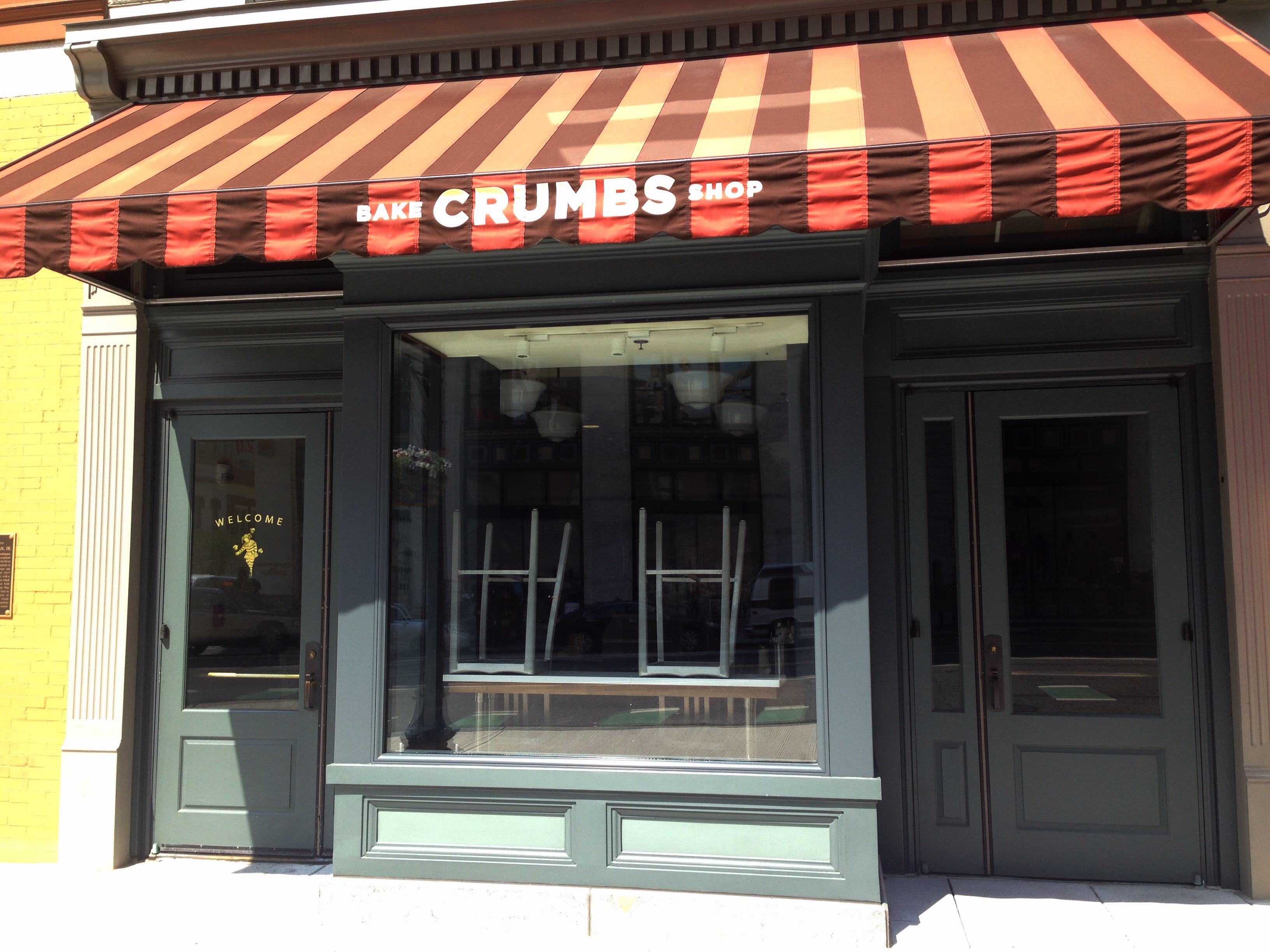WASHINGTON — Getting delisted from Nasdaq knocked the icing off the cupcake for New York City-based Crumbs Bake Shop, Inc.
On Monday, the chain revealed it was closing all of its 48 stores.
The Nasdaq Stock Market suspended trading of Crumbs’ shares July 1, citing the company’s failure to meet financial requirements. After opening in 2003, it became the first cupcake business to go public in 2011.
As America’s largest cupcake chain fails, some business experts question whether the bad news foreshadows the bust of the so-called cupcake bubble, one of the few businesses that actually boomed during the Great Recession.
But cupcake company owners say there’s no need to stock up on your favorite red velvet treats because the industry is here to stay.
Pam Turkin, owner of Michigan-based Just Baked, said she experienced record sales for a Tuesday on the day after Crumbs announced its closing.
“Something like this happens and everyone goes right to the demise of the product,” Turkin said. “And it really was their business plan unfortunately, and they probably should’ve never been a business that goes public.”
Turkin has 19 locations throughout Southeastern Michigan and one just across the border in Toledo, Ohio. Last year she said her business sold 1.5 million cupcakes, this year she expects to sell 1.8 million.
Turkin bakes her cupcakes on site. But Crumbs didn’t make its cupcakes at its stores –in each major market the company contracted with a commercial baker to supply proprietary products to stores on an exclusive basis, according to its 2013 annual report. That kind of operation could raise labor costs, Turkin said.
“It’s a business in my opinion that needs somebody at the helm showing the love of a baked product,” she said. “… I still sit in the bakery every day and even though we’re at a million and a half, I go in every day and watch what comes out of my oven.”
Not everyone is convinced the cupcake industry will survive and prosper.
Rohit Arora, CEO of Biz2Credit.com and an expert on small business growth, said it will be challenging for other cupcake franchises to get financing following the collapse of Crumbs.
The cupcake craze took off in the late 1990s when the television series Sex and the City featured cupcakes from Magnolia Bakery in Manhattan. Actress Sarah Jessica Parker took a bite out of a gourmet pink cupcake and the rest was history.
Back to Crumbs and the present. “The product line was not varied enough and too many competitors took advantage of the fad,” Arora said. “They [Crumbs] had been closing stores last year, and the trend continued this year. Their business model with 80 percent of revenue coming from cupcakes was not enough to sustain the business.”
Hello Cupcake in the Dupont Circle neighborhood in Washington is shifting its business model to stand out more in the D.C. area, which is saturated with cupcake businesses.
Penny Karas, owner and executive pastry chef at Hello Cupcake, said her store is beginning to offer more products including breakfast pastries, coffee options, and ice cream and cookie sandwiches.
“Part of their [Crumbs] downfall was that they had to start answering to shareholders instead of their customers,” Karas said. “Their biggest problem was that they were a victim of their own success, too much growth too fast.”
However, product variation doesn’t seem to be a concern at Georgetown Cupcake, a business that only sells … cupcakes.
Sophie LaMontagne, owner of Georgetown Cupcake, said the two key ingredients in the success of any food business are careful growth and product quality.
“We can’t speak for other companies and why they fail, but we can say that Georgetown Cupcake has always taken a very disciplined approach to growth that never loses sight of the importance of product quality and the overall customer experience,” LaMontagne said.
So could the downfall of Crumbs be traced to the decision to go public?
Not entirely, said Michel Theriault, author of Quick Guides for Managers.
“It probably wasn’t the cause, but definitely contributed,” Theriault said. “In a nutshell the pressures of being a public company would make it harder to do what they needed to do to be successful because of the nature of the business they’re in. Diversification is going to be a necessity.”
Crumbs didn’t respond to interview requests.


